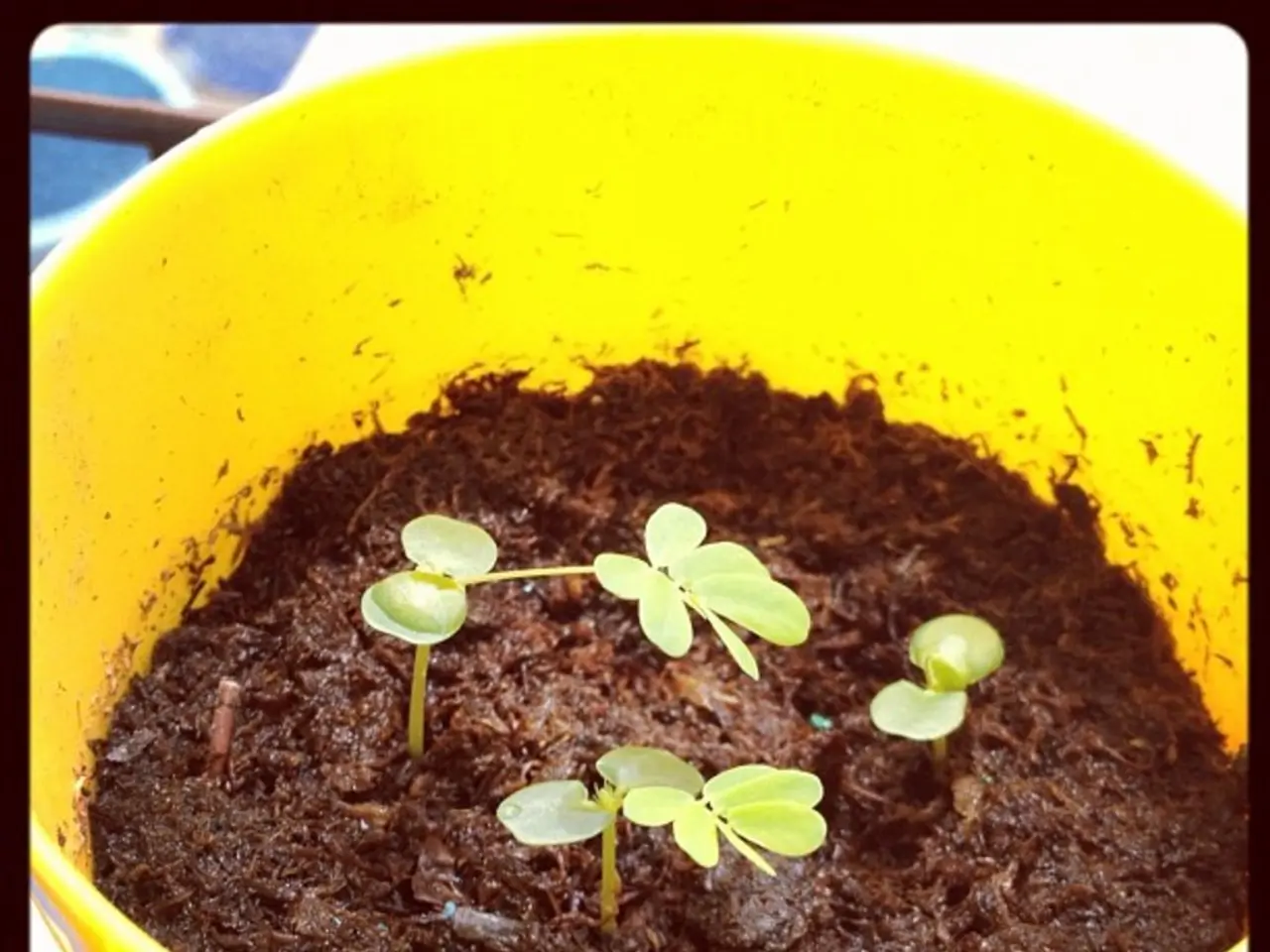Understanding the Lifespan and Efficiency of Plant Fertilizers: A Comprehensive Guide
In the realm of gardening, maintaining the longevity and efficacy of fertilizers is of utmost importance. Whether you opt for chemical, organic, or liquid fertilizers, understanding how to store and use them properly can significantly extend their shelf life and ensure optimal plant growth.
Firstly, it's crucial to store your fertilizers in a cool, dry place, away from moisture and temperature extremes. This is particularly important for liquid and powdered fertilizers, as they are more susceptible to degradation. Keeping containers tightly sealed is another key factor in preserving the nutrient value and usability of your fertilizers.
Light exposure can degrade nutrients in fertilizers over time, so it's best to store them in a dark place. Follow manufacturer guidelines for storage temperature and handling, especially for biofertilizers, which contain living organisms sensitive to their environment.
When it comes to liquid fertilizers, diluting them as per instructions can help prevent over-concentration. It's also essential to check for signs of spoilage or clumping, which indicate reduced quality or contamination.
Chemical dry fertilizers, such as urea, ammonium sulfate, and calcium nitrate, are quite stable and have no formal expiration. However, improper storage (exposure to moisture causing clumping or caking) can impair their usability.
Organic fertilizers, like compost and manure, not only feed plants but also enhance the soil ecosystem. They have a longer shelf life than synthetic fertilizers and slowly supply nutrients, reducing the risk of runoff and negating concerns of toxin buildup.
Safety is another crucial aspect when dealing with fertilizers. Keep any fertilizer, especially synthetic types, out of reach of children and pets, and use a protective mask when applying them.
When applying weed and feed fertilizers, target the application area correctly to protect desired plants and the surrounding ecosystem. Always check the packaging for any disposal instructions and comply with local regulations to prevent environmental contamination.
Lastly, it's important to manage synthetic fertilizers with care due to the salts and chemicals they contain. Adequate ventilation is crucial in preventing the buildup of harmful gases from certain fertilizers, but direct air flow should be avoided. Store fertilizers away from windows and places with significant temperature swings, and check for signs of rodents that might compromise the integrity of the packaging.
By following these best practices, you can ensure that your fertilizers remain effective and beneficial for your plants, while also maintaining a safe and eco-friendly gardening environment.
In the realm of modern living, home-and-garden isn't just about plant maintenance. Smart-home-devices have infiltrated the gardening world, offering gadgets like automatic irrigation systems and soil moisture sensors.
Luxury lifestyles often intertwine fashion-and-beauty with the outdoors. Some homeowners opt for garden benches adorned with high-quality fabric, or pots featuring distinctive designs, while others enjoy fashionable outdoor dining sets for hosting alfresco events.
Technology doesn't only extend to the garden; it also seeps into the heart of homes, making them more efficient. Homeowners are increasingly turning towards technology such as advanced vacuum cleaners, smart refrigerators, and energy-saving devices for their home-and-garden needs.






